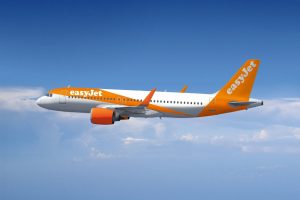Chamber accuses anti-HS2 campaign of making ‘wild guesses’

BUSINESS leaders in the West Midlands has described a report which sets out to undermine the development of high-speed rail project HS2 as “flimsy and unsubstantiated”.
The Institute of Economic Affairs (IEA) claimed that costs would soar by more than £30bn from the current estimate of £50bn (including trains) and that a swathe of countryside would be blighted by convoys of trucks rumbling through peaceful towns during the seven-year construction phase.
But Jerry Blackett, chief executive of Birmingham Chamber of Commerce Group, said the report was short-sighted and seemed to be based on “wild guesses”, especially on the issue of costs.
He said: “The IEA is a London-based economic think tank that champions the ‘small state’ so it was never likely to support HS2.
“The IEA does not set out how it has done its sums to arrive at the £30bn to give the £80bn total. Its figures are not based on evidence – it’s a wild guess, which it effectively concedes.
“The £30bn is attributed in the report to ‘transport schemes linking to HS2’ – schemes that elsewhere they say will probably ‘never be built’.
“So it can be concluded – from its own report – that the £30bn figure is a wild guess at the costs of some schemes that they say will probably never be built.”
The Campaign to Protect Rural England (CPRE) has expressed concern about how HS2 plan to transport excavated material during construction and one report said it would cause “environmental havoc” along a 40-mile corridor, blighting the lives of “500,000 unsuspecting people”.
Blackett said: “HS2 is working to ensure that over 95% of excavated material is beneficially reused for the construction of the railway, including noise and visual screening, therefore reducing the need for long-distance transportation.
“Overall the report is in many areas flimsy and unsubstantiated and no account is given to the disastrous results of not building HS2. They ignore the broader impact of the gridlock on the West Coast mainline that will result if we do nothing.
“Development of HS2 will free up the existing lines and open up easier reports for getting our export goods to ports like Southampton.
“The report is extremely London and south-east centric and advocates only investing in those areas, ignoring the cases for the midlands and the north.
“Birmingham Chamber has consistently supported HS2 because it offers a compelling case for jobs and growth.
“We believe the economic benefits from connecting eight great cities will kick-start wealth creation outside of London. We need to ensure our cities can compete with European cities like Munich, Milan, Lyon and Barcelona, which are already ahead on their rail links.”
The IEA called for HS2 to be scrapped and the money spent on other transport schemes.
Work on the first phase of HS2, which links Birmingham and London, is due to start in 2016 and be operational by 2026. The second phase, linking to Manchester and Leeds, is due to be up and running in 2032.









